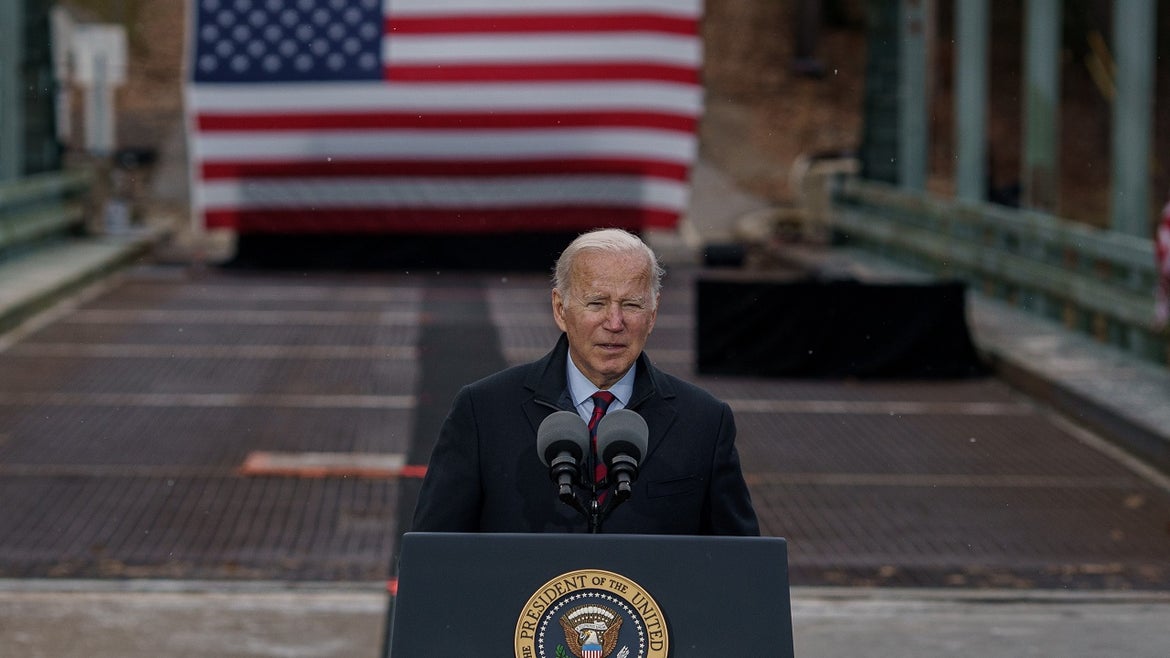The $1.2 trillion overhaul of how Americans travel took effect six months ago.
This week marks the sixth-month anniversary of President Biden's massive plan to "rebuild the backbone" of America by fixing the nation's transportation system, from outdated public transit to crumbling roads and bridges.
"My message to the American people is this: America is moving again, and your life is going to change for the better," Biden said when he signed $1.2 trillion bill in November. It was the largest outpouring of public monies since the 1950s, when building freeways and highways across the country exploded in earnest as Americans bought cars in record-setting numbers.
So where is the money going?
Some 4,300 projects are underway, with $110 billion in funding available, the White House announced Monday. The money will go to repairing roads, improving electrical grids and expanding broadband internet service.
The list also includes not only large-scale jobs, but community-based endeavors such as widening bike lanes and buying new, energy-efficient buses.
"We're hitting the ground running on the projects that are shovel-ready," senior White House aide Mitch Landrieu told reporters Monday.
"I think that if Americans step back, we will all have to admit that for the last 50 years we've had the need to do this and we haven't found the will or the way to get it done," Landrieu said.
The biggest funds are going to the big states of California, New York and Texas. Each is receiving more than $25 billion.
Governors and mayors have been told they are responsible for applying for 90% of the available money, and for overseeing its spending. The federal government accounts for dispersing 10% of the funds, to projects including clean energy and fighting the rising number of traffic collisions through road safety programs.
Battling climate change is part of the program, with Arizona, Washington and Oregon getting nearly $40 million each toward mitigating wildfire dangers.
Michigan is receiving $1.3 billion to improve its water distribution system. The state is home to the city of Flint, where corroding lead pipes turned drinking water into brown sludge and sickened thousands with dangerous levels of lead pouring from faucets.
Overall, the infrastructure plan sets aside $110 billion for roads, bridges and major transportation projects; $65 billion to expand and provide less expensive internet service; $66 billion for train and railroad improvements; $55 billion for building and repairing water systems; $25 billion for airports; $39.2 billion in new spending for mass transit; and $5 billion for charging stations for electric cars and trucks.
The plan's six-month anniversary also lands at a critical time for Americans. The stock market is wildly fluctuating, inflation is the highest in nearly 40 years and Russia's invasion of Ukraine has skyrocketed energy prices, resulting in gas prices at U.S. pumps surging past $4.50 per gallon.
And mid-term elections loom, with political rhetoric at a fever pitch between Democrats and Republicans.
"All we can do is tell the story about what we do, and the impact that it has on the midterms will be whatever it's going to be," Landrieu said Monday.
"Some really smart person said, you know, even those people that voted no want the dough," he said. "This is as close to consensus in my political life that I have seen."
Related Stories






